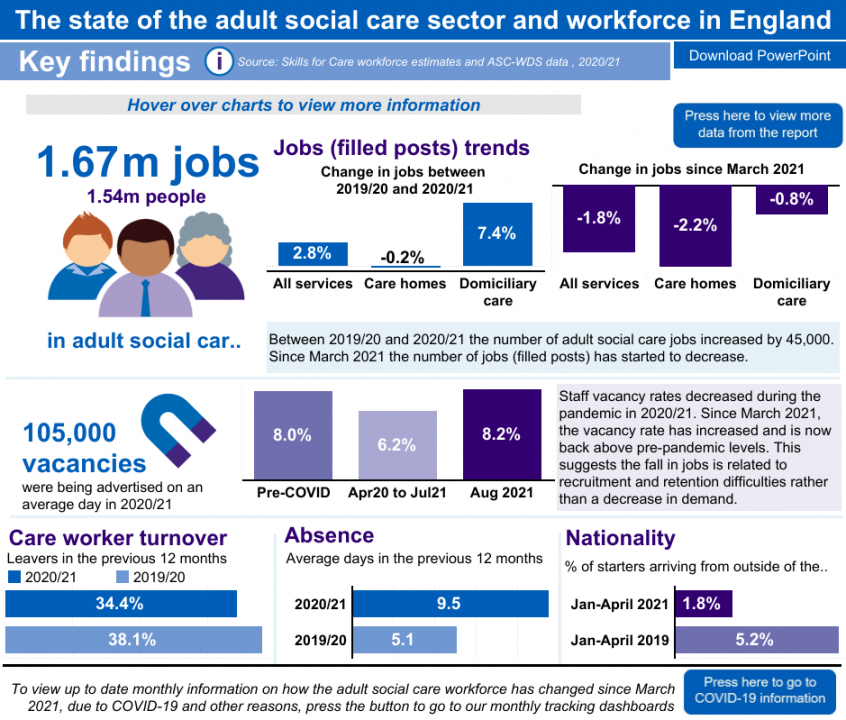In England, there was a noticeable rise in the number of jobs, job vacancies and levels of staff sickness felt in adult social care during the pandemic. While often independently managed or funded through local authorities, these rises can have knock-on effects for healthcare organisations, including restricting the opportunities to safely discharge some patients back into adult social care settings.
Key highlights taken away from it include levels of staff sickness nearly doubling over the course of the pandemic (from an average of 5.1 days before the pandemic, up to 9.5 days being lost to sickness in 2020/21).
Since the start of the pandemic, occupancy levels in care homes were also seen to have fallen. This has been attributed to a higher mortality rate among care home residents in 2020/21, as well as a shift in demand away from residential care and towards domiciliary care.
This led to an increase, between 2019/20 and 2020/21, of around 40,000 jobs in domiciliary care (a 7.4% increase). Ober the same period, despite the decrease in occupancy rates, the number of jobs in care homes remained broadly the same, leading to greater numbers of vacancies.
Vacancy rates actually initially fell during the start of the pandemic, reasoned potentially due to fewer jobs being available in the wider economy during this perio,d though since May 2021 vacancy rates have steadily risen since the wider economy has opened back up. As of August 2021, vacancy rates are now back above their pre-pandemic levels.
Staff turnover rates did decrease however during 2020/21, with registered manager turnover rates down by 4.7 percentage points and care workers turnover down by 3.7 percentage points.
Coupling with that, since March 2021, the opening up of the wider economy has led to many social care employers reporting being adversely affected when recruiting and retaining staff compared to before hte pandemic.
Reflecting on the announcement, Danny Mortimer, Co-Convenor of the Cavendish Coalition and Chief Executive of NHS Employers, which is part of the NHS Confederation, said: “This is a stark reminder of the ongoing and very difficult workforce issues that exist social care.
“Social care desperately needs long term investment across the sector to improve services, boost wages and help the recruitment and retention of these important roles in our communities.
“All of us working across social care and health are clear that the present immigration system has failed to help social care and needs urgent reform.
“We are also clear that the government must act decisively to ensure a long term strategy for investment in the social care workforce, that makes working in social care a more attractive and valued career in the current challenging labour market.”
*click the infographic below for more information




















